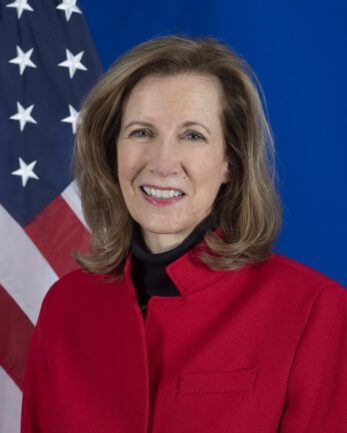In a poignant address at the United Nations General Assembly meeting commemorating the International Day of Remembrance of the Victims of Slavery and the Transatlantic Slave Trade, Ambassador Lisa Carty, U.S. Representative to the Economic and Social Council, delivered a stirring message urging global acknowledgment and action against the enduring legacy of slavery and racism.
Opening her remarks, Ambassador Carty expressed gratitude to the King family for their presence, noting Dr. King’s enduring legacy in inspiring positive change.
She emphasised the significance of the day in reflecting on one of humanity’s darkest chapters, where millions were forcibly taken from Africa and subjected to the horrors of chattel slavery over centuries.
Highlighting the often-overlooked historical reality, Ambassador Carty pointed out that slavery was not confined to the South but was prevalent across the United States, even in New York City. She emphasised the importance of understanding and reckoning with this full history, urging a collective acknowledgment of the profound impact of slavery globally.
However, Ambassador Carty stressed that remembrance alone is not sufficient; it must be accompanied by a sincere reckoning with the enduring legacy of slavery, colonialism, and systemic racism. She called for confronting the devastating consequences of anti-Black racism, which continue to undermine development, peace, democracy, and the rule of law worldwide.
Ambassador Carty highlighted the Biden-Harris Administration’s commitment to this cause, citing President Biden’s historic Executive Order on Equity and the establishment of the President’s Advisory Council on African Diaspora Engagement. She also underscored U.S. support for initiatives such as the Permanent Forum on People of African Descent, demonstrating the nation’s dedication to advancing inclusion, belonging, and awareness of African Diaspora history and culture.
At the end , Ambassador Carty reiterated the urgent need for collective action to eradicate systemic racism, emphasizing the responsibility of all nations to confront hard truths and work towards a better future for generations to come.



